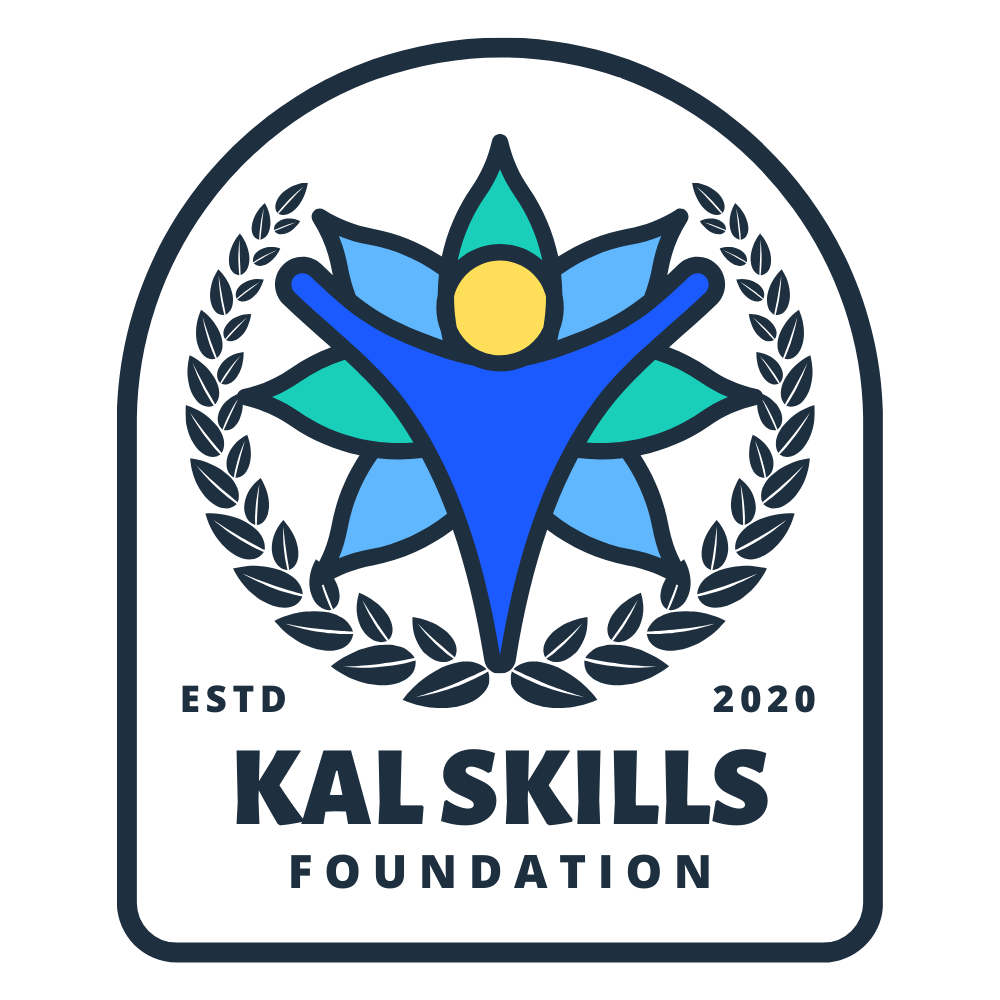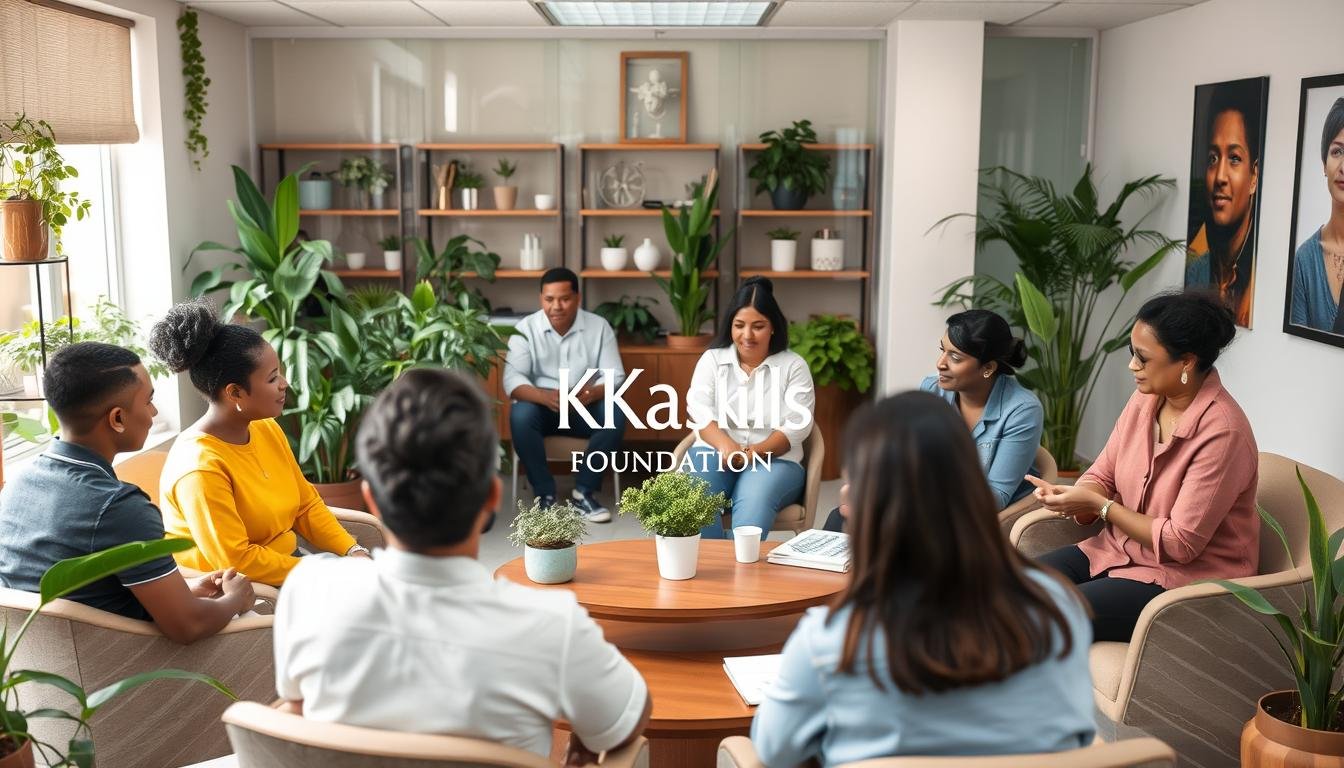Introduction to Personal Development
Personal development is a lifelong journey focused on self-improvement and the enhancement of one’s skills, qualities, and overall potential. It encompasses various activities that individuals engage in to cultivate growth, develop personal growth skills, and ultimately achieve their goals. This process plays a crucial role in enhancing both personal and professional aspects of life, leading to a more fulfilling existence.
The concept of personal development is multifaceted, involving self-awareness, goal setting, resilience, and the continuous pursuit of learning. Self-awareness serves as the foundation of personal development; it requires individuals to reflect on their strengths, weaknesses, values, and beliefs. Greater self-awareness fosters a clearer understanding of oneself, enabling one to identify areas for improvement and establish realistic goals, driving progress and motivation.
Goal setting is another key component in the realm of personal development. By articulating specific, measurable, attainable, relevant, and time-bound (SMART) goals, individuals can create a structured roadmap that guides them toward their aspirations. This process helps to clarify intentions and encourages individuals to stay focused and committed to their personal growth skills, facilitating long-term success.
Moreover, personal development is vital within a broader societal context. It empowers individuals to navigate challenges, adapt to change, and cultivate resilience, which are essential skills in today’s fast-paced world. Investing time and effort into personal development not only benefits the individual but also contributes positively to one’s community and workplace by fostering collaboration and a culture of growth.
As we delve further into strategies that can amplify personal development, it is essential to recognize the transformative potential of this journey in unlocking one’s fullest capacity. Understanding the intricacies of personal development equips individuals with the tools needed to embrace change and evolve in both personal and professional domains.
Setting SMART Goals
Setting effective personal development goals is vital for achieving personal growth skills and success. One popular framework for goal setting is the SMART criteria, an acronym that stands for Specific, Measurable, Achievable, Relevant, and Time-bound. By using this structured approach, individuals can clarify their objectives and create a roadmap that will guide their personal development journey.
To begin, Specific goals eliminate ambiguity by stating exactly what you want to accomplish. For instance, instead of saying, “I want to get better at my job,” a specific goal would be, “I aim to complete a professional certification in my field.” This clarity directs your focus and fosters motivation, as it leaves no room for misinterpretation.
Measurable goals allow individuals to track their progress. By incorporating quantifiable criteria, such as “I will read one professional development book per month,” one can assess their advancement in personal growth skills. This sense of progression is essential to maintaining motivation, as it enables individuals to celebrate small victories along the way.
The Achievable aspect emphasizes setting realistic and attainable goals. While it is important to challenge oneself, setting an unattainable goal can lead to frustration and decreased motivation. A goal should stretch one’s abilities but remain within reach—this balance helps maintain a positive trajectory in personal development.
Relevance ensures that the goals align with one’s broader aspirations and values. For instance, pursuing a goal that contributes to overall career advancement directly nurtures personal and professional development. Finally, Time-bound goals incorporate deadlines, instilling a sense of urgency and accountability. A deadline serves as a powerful motivator, pushing individuals to commit actively to their personal growth journey.
Utilizing the SMART criteria effectively enhances goal-setting for personal development. As individuals establish clear, structured goals, they lay the groundwork for sustained personal growth skills and long-term success.
Embracing a Growth Mindset
To embark on a journey of personal development, it is crucial to cultivate a growth mindset. This psychological framework stands in contrast to a fixed mindset, where individuals believe their abilities and intelligence are static and unchangeable. A growth mindset, on the other hand, embodies the belief that personal growth skills can be developed through dedication and hard work. This fundamental shift in perspective plays a pivotal role in fostering resilience, facilitating continuous learning, and ultimately driving higher achievement.
Individuals with a growth mindset view challenges not as obstacles, but as opportunities to expand their capabilities. They are more inclined to take risks and embrace new experiences, understanding that failure is a part of the learning process. This outlook enhances their adaptability, allowing them to respond positively to setbacks while leveraging each experience as a stepping stone towards improvement. Personal growth becomes an intrinsic part of their journey, empowering them to seek knowledge and skills that further contribute to their development.
The difference between these two mindsets is also reflected in how individuals react to criticism and feedback. Those with a growth mindset perceive constructive criticism as valuable input for their personal development, whereas those with a fixed mindset may take it as a personal attack. This openness to feedback creates a constructive environment conducive to learning and growth in various aspects of life.
In summary, embracing a growth mindset is vital for anyone striving to unlock their potential through personal development. By shifting focus from limitations to possibilities, individuals can harness their personal growth skills effectively and embark on a lifelong journey of learning and self-improvement.
Building Self-Discipline
Self-discipline is a cornerstone of personal development, providing individuals with the ability to control their actions and reactions in pursuit of long-term goals. It is the capacity to remain focused on tasks and commitments, especially when faced with distractions or obstacles. Developing self-discipline is crucial for fostering personal growth skills as it allows individuals to push through challenges and stay committed to their objectives.
One of the first steps in cultivating self-discipline is setting clear, achievable goals. By defining specific objectives, individuals can create a roadmap that outlines the steps needed to reach their targets. This clarity not only helps maintain focus but also allows for tracking progress, which is vital for building motivation. Breaking down larger goals into smaller, manageable tasks can further enhance motivation, making it easier to take the first step and build momentum.
Overcoming procrastination is another significant aspect of building self-discipline. To combat this tendency, it is helpful to identify triggers that lead to procrastination and develop strategies to address them. Techniques such as the Pomodoro Technique — working in short, focused bursts followed by brief breaks — can enhance productivity and make tasks feel less daunting. Another effective method is to prioritize tasks based on urgency and importance, ensuring that the most critical activities are addressed first.
Maintaining motivation throughout the journey of personal development requires consistent effort. Celebrating small victories along the way can reinforce positive behavior and encourage individuals to keep progressing. Additionally, surrounding oneself with supportive individuals who encourage accountability can also be beneficial. By integrating these strategies, one can effectively enhance self-discipline, fostering an environment conducive to continuous personal growth and development.
Enhancing Emotional Intelligence
Emotional intelligence (EI) encompasses the ability to recognize, understand, and manage our own emotions while also recognizing and influencing the emotions of others. One of the key components of personal development, emotional intelligence plays a critical role in fostering personal growth skills and enhancing relationships both personally and professionally. By developing this essential skill set, individuals can lead more fulfilling lives and create positive interactions with those around them.
Self-awareness is the first step in improving emotional intelligence. This refers to the ability to understand one’s own emotions, strengths, and weaknesses. Individuals can enhance their self-awareness by practicing mindfulness and reflection, which involves regularly assessing their emotions and the driving factors behind them. Journaling can also be a useful tool for tracking emotional responses to various situations, thereby improving self-perception and emotional understanding.
Self-regulation is the next vital aspect of EI. It enables individuals to control impulsive feelings and behaviors, directly impacting personal growth. Techniques such as deep breathing, visualization, and pausing before reacting can facilitate better emotional control. With time and practice, self-regulation allows for more thoughtful responses rather than knee-jerk reactions, culminating in improved decision-making.
Empathy, another fundamental EI component, allows individuals to understand and resonate with the feelings of others. This skill promotes healthier relationships and encourages effective communication. To cultivate empathy, one can engage in active listening, demonstrating genuine interest in others’ emotions and perspectives. This practice strengthens interpersonal bonds and promotes emotional support.
Furthermore, developing social skills is essential for enhancing emotional intelligence. These skills encompass effective communication, conflict resolution, and relationship management. Engaging in group activities or collaborative projects can provide opportunities to practice and refine these skills. Through consistent effort, individuals can significantly enhance their emotional intelligence, leading to substantial personal development and an enriched social circle.
Continuous Learning and Skill Development
Continuous learning and skill development play a crucial role in the journey of personal development. The rapidly changing world demands that individuals adapt to new challenges and opportunities, making it essential to stay informed and knowledgeable. Engaging in lifelong learning enables one to acquire new skills and perspectives that are vital for personal growth and career advancement.
One effective way to cultivate continuous learning is by actively seeking out educational opportunities. This can include enrolling in formal courses, attending workshops and seminars, or participating in webinars that focus on relevant topics. Many institutions and organizations offer specialized programs designed to enhance specific personal growth skills, supplying learners with the knowledge necessary to excel in various fields.
The internet has significantly transformed how we access information and learn new skills. Online platforms such as Coursera, Udemy, and LinkedIn Learning provide a plethora of resources for self-directed learning. These platforms offer courses on a wide range of subjects, allowing individuals to customize their learning experience according to their interests and needs. Additionally, forums and discussion groups can foster a community of learners who share insights and resources, further enriching personal development.
Moreover, developing a habit of reading is an essential component of skill development. Reading not only broadens one’s understanding of diverse topics but also enhances critical thinking and analytical skills. Exploring different genres, such as biographies, self-help books, or scientific literature, can introduce new ideas and perspectives that contribute to personal growth. Furthermore, dedicating time to engage with hobbies and explore new interests can lead to unexpected skill enhancements, revealing untapped potential.
Cultivating Healthy Habits
Establishing healthy habits is a cornerstone of personal development, influencing various aspects of life including physical health, mental well-being, and effective time management. The process of cultivating habits might seem daunting initially; nevertheless, when approached with intentionality and persistence, it can lead to significant improvements in both personal and professional realms.
One of the primary areas impacted by healthy habits is physical health, which serves as the foundation of personal growth skills. Regular exercise, a balanced diet, and adequate sleep contribute to improved energy levels and overall well-being. When individuals incorporate physical activity into their daily routine, they not only enhance their physical condition but also boost their mental clarity and emotional resilience. Engaging in activities such as walking, jogging, or even practicing yoga can promote a healthier lifestyle that aids personal growth.
Furthermore, mental health is equally important for personal development. Establishing mindfulness practices, such as meditation or journaling, can significantly enhance mental clarity and emotional stability. These practices allow individuals to reflect on their feelings, thoughts, and behaviors, fostering self-awareness and potentially leading to improved decision-making and interpersonal relationships. Mental well-being plays a crucial role in building the persistence needed to achieve personal growth goals.
Finally, effective time management skills are vital in enabling individuals to prioritize tasks and allocate time efficiently. Establishing a consistent daily routine that balances work, learning, and leisure can significantly enhance productivity. Tools such as planners or digital applications can aid in tracking progress and setting achievable goals, contributing to sustained growth over time.
Incorporating these healthy habits into daily life creates a strong foundation for personal development and paves the way for ongoing personal growth. As individuals commit to nurturing these habits, they often find themselves better equipped to face challenges and seize opportunities, thereby unlocking their full potential.
Networking and Building Relationships
Networking and building relationships are vital components of personal development that can significantly enhance your growth journey. Establishing connections with individuals across various fields can unlock opportunities that foster both professional and personal growth skills. Engage in networking by attending industry-related events, workshops, and seminars where you can meet like-minded individuals. This proactive approach allows you to exchange ideas, gain insights, and share experiences that can contribute to your personal development.
One effective networking strategy is to seek mentorship from someone who has already achieved the success you aspire to. A mentor can provide guidance, advice, and encouragement as you navigate your personal growth path. This relationship can be mutually beneficial, as mentoring not only reinforces the mentor’s knowledge but also fosters a sense of community and support. Consider reaching out to professionals in your area of interest or joining formal mentorship programs that connect individuals seeking guidance with experienced mentors.
Building meaningful relationships goes beyond mere networking; it is about forming genuine connections with others. To achieve this, focus on active listening and showing genuine interest in the experiences and aspirations of those you meet. Establishing trust and rapport is essential for nurturing these relationships over time. Additionally, leverage social media platforms like LinkedIn to maintain connections and share valuable resources that can help others on their personal growth journey.
In conclusion, networking and building relationships are essential strategies for enhancing personal development. By developing a robust network and seeking mentorship, you not only expand your horizons but also create a support system that can guide you through challenges, ultimately contributing to your overall success.
Reflecting and Adapting
Reflection plays a pivotal role in the journey of personal development, acting as a bridge between experiences and growth. It allows individuals to pause, assess their progress, and determine whether they are effectively moving towards their goals. This process of self-reflection is integral in fostering personal growth skills, as it encourages deeper understanding of one’s actions and motivations.
To begin, individuals should regularly set aside time to evaluate their experiences. This can be achieved through journaling, discussions with mentors, or even meditative practices that promote introspection. By documenting thoughts and feelings about specific experiences, one can identify patterns of behavior, strengths, and areas needing improvement. It is through this reflection that individuals can connect the dots between experiences and the skills essential for personal growth.
Moreover, adapting strategies based on reflective insights is crucial for continued advancement. If a certain approach to achieving personal development goals yields little result, it is important to be flexible and willing to explore alternative methods. Embracing change is a hallmark of effective personal growth. This adaptability stems from an understanding of oneself and recognition that the journey may require shifting perspectives or techniques as circumstances evolve.
Additionally, seeking feedback from others can enhance reflection efforts. Engaging with peers or professionals can provide new insights and challenge existing beliefs, fostering a more comprehensive understanding of one’s personal development path. Consequently, embracing feedback alongside reflective practices allows for a more accountable and informed approach to personal growth, solidifying the foundation needed for progressive change.
In conclusion, the process of reflection and adaptation is essential for personal development. By actively evaluating progress and being open to adjusting one’s strategies, individuals can ensure they are on the right track toward achieving their personal growth objectives.





